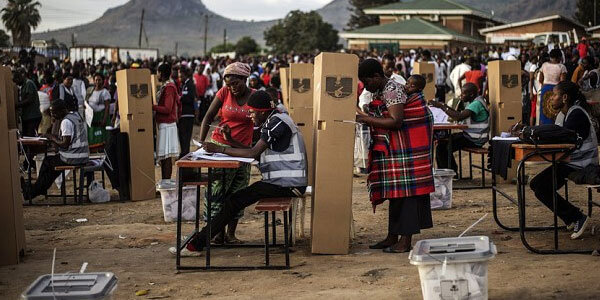
Parliament will discuss three electoral reform bills in November, including the Presidential, Parliamentary and Local Government Elections Bill, 2022 which is providing for the holding of second presidential election in the event that the first presidential election does not produce a candidate with fifty percent plus one vote.
Malawi Electoral Commission (MEC) has confirmed this in a statement signed by chief elections officer Andrew Mpesi.
The Presidential, Parliamentary and Local Government Elections Bill, 2022 aims at coming up with a new and comprehensive legal framework for the regulation of all elections in Malawi. The Bill has harmonised and consolidated the provisions in the Parliamentary and Presidential Elections Act and the Local Government Elections Act into one piece of legislation to improve accessibility and consistency of the legal framework governing the conduct of all elections in Malawi.
“Further, the bill is providing for the holding of second election in the event that the first presidential election does not produce candidate that satisfied the fifty percent plus one vote threshold as set by the Constitution of the Republic of Malawi, filling of vacancies created by the death or withdrawal of nomination of a running mate before the holding of a presidential election and prescribing the period for the swearing in of a person who has been elected to be President or appointed to be First Vice-President or Second Vice-President. The Bill also contains other provisions that are aimed at improving the efficiency of management of elections,” said Mpesi.
Another electoral reform bill to be tabled in Parliament this year is the Constitution (Amendment) Bill, 2022 which aims at prescribing the period for holding by-elections, providing for the minimum and the maximum number of members of the Electoral Commission and changing of the name of the Electoral Commission to Malawi Electoral Commission.
Parliament will also discuss Electoral Commission (Amendment) Bill, 2022 which will provide for minimum educational qualifications for persons to be appointed as members of the Commission and empower the Commission to devise other means of voting.
The bills were drafted after the Electoral Commission, through its Legal Services Committee, conducted a process of identifying and making recommendations on specific provisions in the whole electoral legal framework that require reform through legislative amendments for purposes of improving both efficiency and credibility in the management of elections.
A National Task Force came up with consolidated proposed areas of reform which were then submitted to the Ministry of Justice and Constitutional Affairs.
The Bills which are carrying the proposed reforms were adopted by Cabinet and referred to the Ministry of Justice for finalization for presentation and tabling before Parliament.
Once the Bills have been published in the Gazette, the National Task Force will hold a national stakeholders’ meeting to unpack all changes that are being proposed through the Bills.














